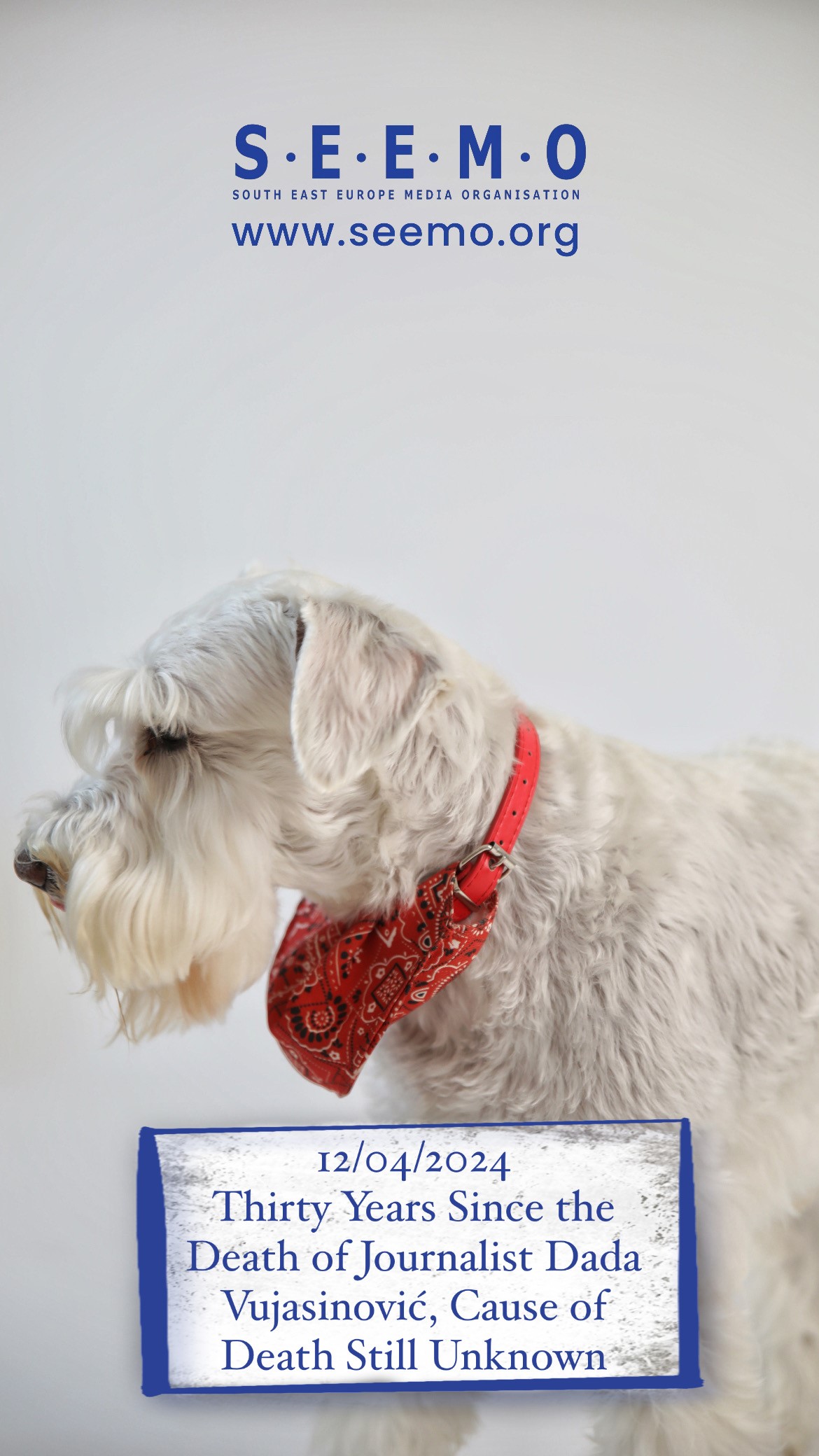Thirty years have passed since the tragic death of Radislava Dada Vujasinović, a prominent journalist working for Duga (Rainbow) weekly in Serbia, known for her fearless reporting during the turbulent war times in former Yugoslavia. Yet, the circumstances surrounding her death remain shrouded in mystery, with no definitive resolution in sight.
Dada Vujasinović was discovered lifeless on 9 April 1994, in her apartment on Third Boulevard, number 118, in Novi Beograd in Belgrade, Serbia. Despite decades of investigation, the cause of her death remains undetermined, fueling speculation ranging from suicide to homicide. She was last seen alive in her apartment on 7 April 1994, where she was sitting with a friend until a little after midnight. As she was not reacting on phone calls and coming to her newsroom, two friends opened her apartment where they found her dead. Initially, Serbian authorities concluded that Vujasinović had taken her own life. The police investigation was carried out without the presence of the judge on duty, who was subsequently informed that it was a suicide, what was against rules. Finger prints from the hunting rifle used to commit the alleged suicide were never taken. None of the neighbors heard the shot from the gun.
In 2008, 14 years after her dead, a recognized ballistics expert in Serbia conducted a series of examinations and concluded that she was killed. He submitted his report to the court, in which it is stated that two parts of a bullet were found in the body of the deceased, which means that Dada was shot twice.
The handling of the investigation has raised serious concerns. Questions persist about the disappearance of crucial evidence, including a notorious green file from her apartment, and allegations of tampering with forensic findings. The lack of transparency and accountability in the investigative process has only compounded the anguish of Dada’s family and friends.
Dada Vujasinović was not just a journalist, she was a courageous truth-seeker who fearlessly confronted the powers that be. Her uncompromising reporting on organized crime, about the Serbian underground and criminals, about the war in former Yugoslavia that started 1991, war profiteers, the army, the police, unsolved murders, earned her both accolades and enemies. Despite facing threats and intimidation, she remained resolute in her pursuit of truth and justice. She reported often also about the Serbian paramilitary commandant and criminal Željko Ražnatović Arkan. According to several sources, Arkan allegedly once called her and said to her that she will be killed.
Efforts to shed light on Dada’s death have been met with obstacles and setbacks, highlighting systemic failures within the justice system. Despite calls for a thorough and impartial investigation, progress has been slow, and justice remains elusive.
The unresolved circumstances surrounding the death of Radislava Dada Vujasinović, stand as a poignant symbol of the challenges faced by journalists in pursuit of justice and accountability. Despite three decades having passed since her tragic demise, the quest for answers continues to be thwarted by a combination of institutional failures, evidence tampering, and a lack of political will. The conflicting narratives, the mishandling of crucial evidence, and the apparent reluctance of authorities to fully investigate the case cast a shadow over Serbia’s judiciary and its commitment to upholding press freedom and the rule of law. As we reflect on Dada’s unwavering dedication to uncovering the truth, it serves as a sobering reminder of the importance of safeguarding journalistic integrity and the imperative of ensuring that those who seek to silence voices of dissent are held accountable.
South East Europe Media Organisation (SEEMO) reminds that revealing the background of her death is the basis for the democratic development of Serbia.
South East Europe Media Organisation (SEEMO) is a regional non-governmental, non profit network of editors, media executives and leading journalists in Southeast, South, East and Central Europe. SEEMO members are in Albania, Armenia, Azerbaijan, Belarus, Bosnia-Herzegovina, Bulgaria, Croatia, Cyprus, Czech Republic, Estonia, Georgia, Greece, Hungary, Kazakhstan, Kosovo, Kyrgyzstan, Latvia, Lithuania, Malta, Moldova (with the territory of Transdnestria), Montenegro, North Macedonia, Poland, Romania, Russia, Serbia, Slovakia, Slovenia, Tajikistan, Turkmenistan, Türkiye / Turkey, Ukraine and Uzbekistan. Austria, Italy, Vatican and San Marino have a special status in SEEMO. SEEMO has over 3000 individual members, and additional media as corporate members.
#fyp #mediafreedom #seemo #freespeech #southeasteuropemediaorganisation #ngo #journalist #serbia #dadavujasinovic #journalistdeath #unsolvedjournalistdeath #SEEMO #pressfreedom #mediafreedom #freemedia

